David Darmon
Specific Differential Entropy Rate Estimation for Continuous-Valued Time Series
Jun 08, 2016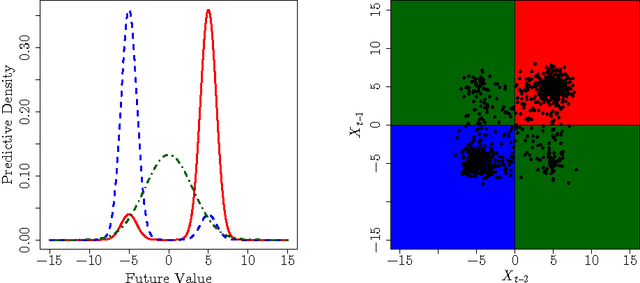
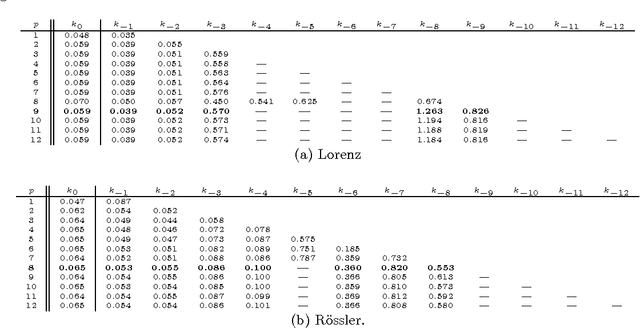
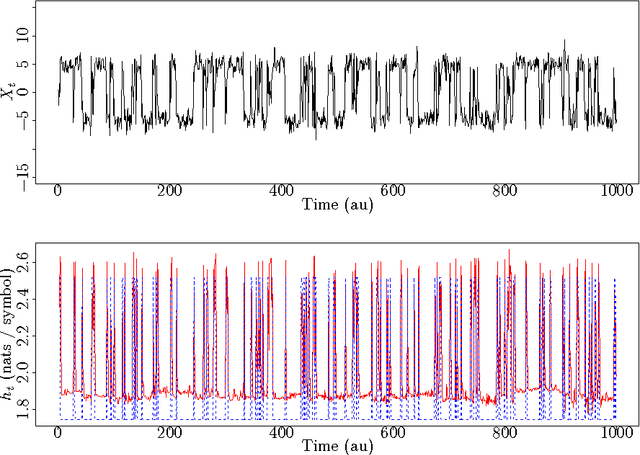

Abstract:We introduce a method for quantifying the inherent unpredictability of a continuous-valued time series via an extension of the differential Shannon entropy rate. Our extension, the specific entropy rate, quantifies the amount of predictive uncertainty associated with a specific state, rather than averaged over all states. We relate the specific entropy rate to popular `complexity' measures such as Approximate and Sample Entropies. We provide a data-driven approach for estimating the specific entropy rate of an observed time series. Finally, we consider three case studies of estimating specific entropy rate from synthetic and physiological data relevant to the analysis of heart rate variability.
Understanding the Predictive Power of Computational Mechanics and Echo State Networks in Social Media
Aug 23, 2013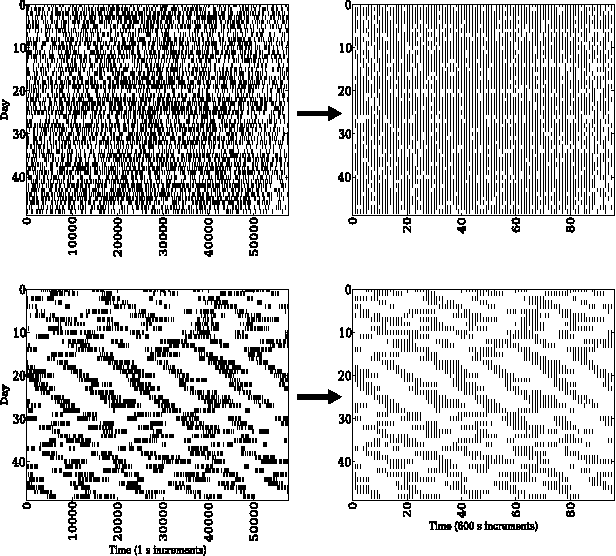
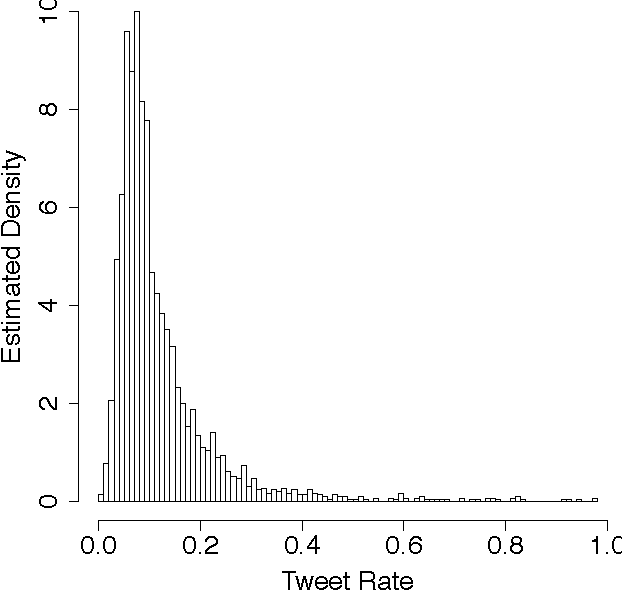
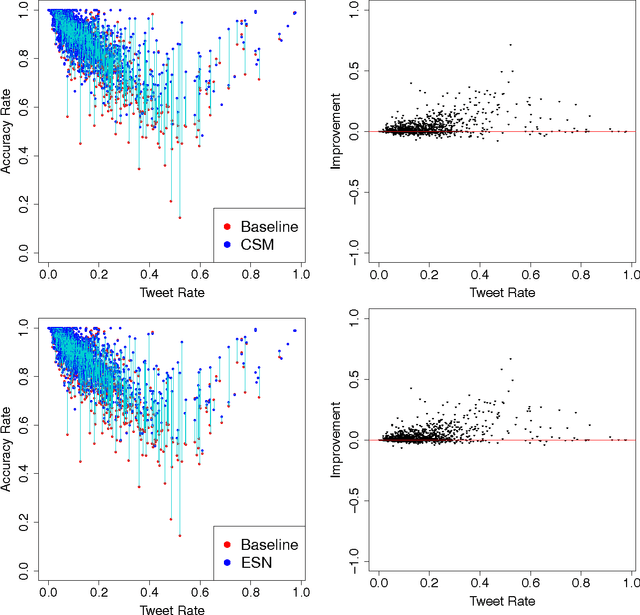
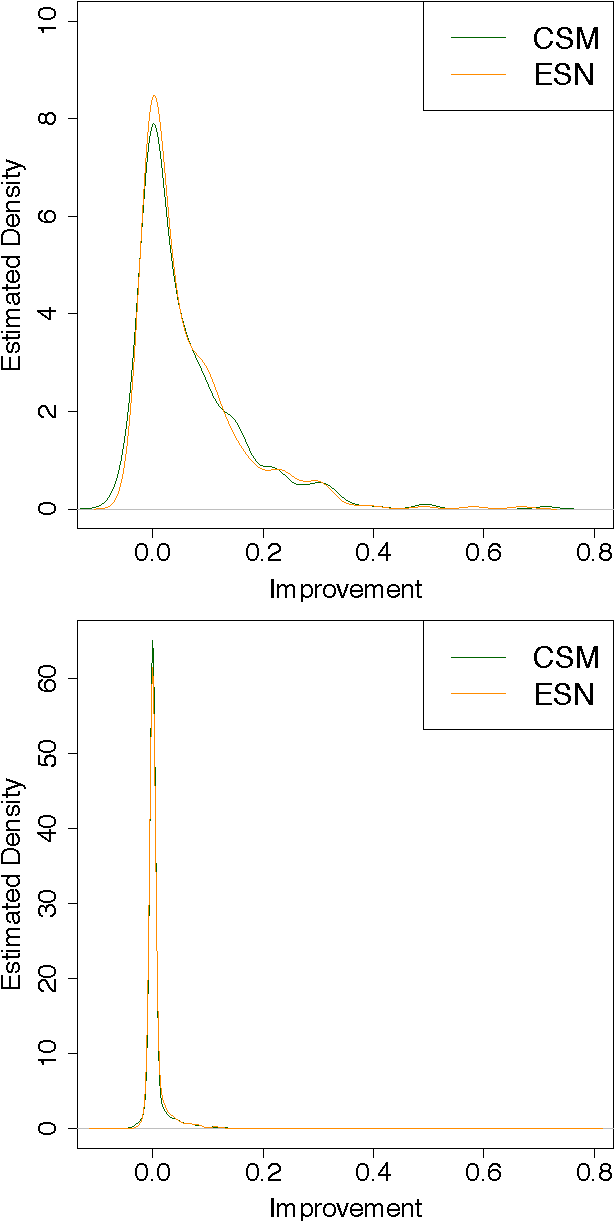
Abstract:There is a large amount of interest in understanding users of social media in order to predict their behavior in this space. Despite this interest, user predictability in social media is not well-understood. To examine this question, we consider a network of fifteen thousand users on Twitter over a seven week period. We apply two contrasting modeling paradigms: computational mechanics and echo state networks. Both methods attempt to model the behavior of users on the basis of their past behavior. We demonstrate that the behavior of users on Twitter can be well-modeled as processes with self-feedback. We find that the two modeling approaches perform very similarly for most users, but that they differ in performance on a small subset of the users. By exploring the properties of these performance-differentiated users, we highlight the challenges faced in applying predictive models to dynamic social data.
 Add to Chrome
Add to Chrome Add to Firefox
Add to Firefox Add to Edge
Add to Edge